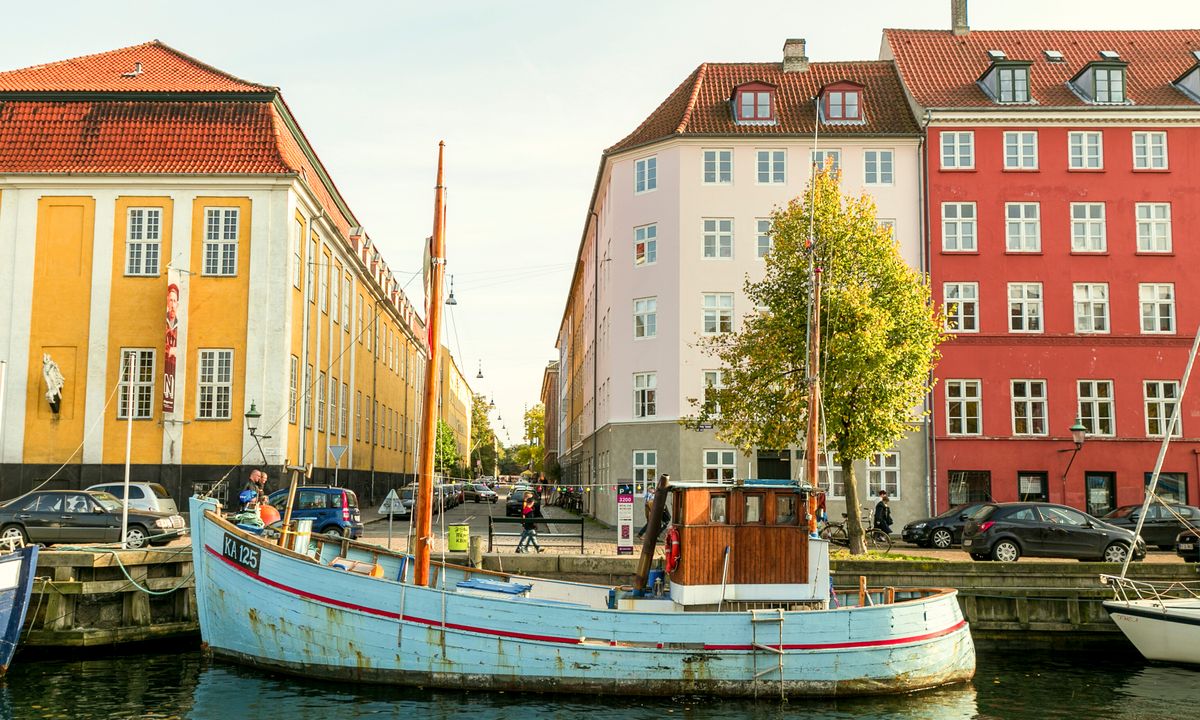Finding Your Space: Alternative Student Accommodations in Copenhagen
Exploring student housing in Copenhagen? From co-living spaces to hostels and nearby cities like Lyngby and Roskilde, find diverse, budget-friendly options to suit your needs. Discover your ideal home in Denmark's vibrant capital.

Copenhagen, with its picturesque canals and cycling culture, is not just Denmark's capital but also a hub for students from around the globe. However, securing a spot to call home in this vibrant city can be as challenging as it is exciting. Recent studies show that over 60% of students face difficulties finding suitable accommodation due to high demand and limited availability, particularly at the beginning of the academic year.
In this blog, we'll dive into the world of alternative student housing in Copenhagen, exploring options that go beyond traditional dormitories and shared apartments.
But before you start looking at alternative accommodation options, check out our listings on Hemavi – Perhaps we've got what you're looking for!
Nearby Cities and Towns
Exploring nearby cities for accommodation can be a smart move, especially given the high demand in Copenhagen itself. Here are a few options to consider:
- Lyngby: Just about 15 kilometers north of Copenhagen, Lyngby is home to several educational institutions, including the Technical University of Denmark (DTU). It's well-connected by public transport, making it a practical choice for students.
- Roskilde: Known for its historical significance and the annual Roskilde Festival, this city is roughly 30 kilometers west of Copenhagen. Roskilde offers a more relaxed atmosphere and generally more affordable housing. It's also well-linked by train services, ensuring a reasonable commute to Copenhagen.
- Hvidovre and Rødovre: These suburbs are located to the west of Copenhagen and offer more residential settings. They are less crowded than the city center, potentially offering more spacious accommodation options at lower prices. Both are well-connected to Copenhagen by public transport.
- Ballerup and Herlev: Located to the northwest of Copenhagen, these areas are more suburban but have good amenities and transport links. The housing here can be more affordable, and the communities are generally quiet, which might be suitable for studying.
- Malmö, Sweden: Surprisingly, some students in Copenhagen opt to live in Malmö, Sweden, due to lower living costs. Malmö is just a 40-minute train ride away from Copenhagen across the Øresund Bridge. This option adds an international aspect to your daily commute and allows you to experience life in two different countries.
These cities offer varied atmospheres, from suburban to semi-urban, and can provide viable alternatives to the bustling and expensive Copenhagen housing market. Always consider the additional travel time and costs when living outside Copenhagen to ensure it aligns with your daily routine and budget.
Housing Foundations
Certainly! Housing foundations in cities like Copenhagen play a crucial role in helping international students find suitable accommodation, especially given the competitive nature of the local housing market. They can sometimes offer options that aren't widely advertised.
University of Copenhagen Housing Foundation (UCHF) is dedicated to helping international students and visiting scholars at the University of Copenhagen. They offer a variety of housing options including student residence halls, shared apartments, and studio apartments. These options are usually furnished and include basic utilities. To access their services, one must be admitted to the University of Copenhagen first, after which they can apply through the UCHF website. It is advisable to apply as early as possible since housing is allocated on a first-come, first-served basis. The foundation’s housing options are strategically located near the university’s campuses, making them convenient for students.
KKIK (Kollegiernes Kontor i København), also known as the Copenhagen Office of Student Housing, is dedicated to managing and facilitating access to a wide range of student housing options throughout Copenhagen. Their portfolio includes a variety of housing types such as dormitories, shared apartments, and individual studio apartments. These accommodations are spread across different parts of the city and its suburbs, catering to students affiliated with any of the higher education institutions in Copenhagen. Interested students should apply directly on their website. The application process involves creating a profile and specifying your housing preferences. The allocation of housing is based on several factors including the length of the waiting list, the student’s educational institution, and specific housing preferences. Priority may be given to international students and those from distant regions, depending on the housing policy of specific residences.
Youth Hostels
Youth hostels in Copenhagen can be a practical and budget-friendly accommodation option for students, especially those who are still in the process of finding long-term housing or prefer a more flexible living arrangement. Many hostels in Copenhagen offer special rates for long-term stays, making them an economical choice compared to standard rental apartments. These rates often include utilities like electricity, water, and internet, which can further reduce living expenses.
One of the main advantages of staying in a hostel is the flexibility it offers. Unlike traditional leases, hostels typically don't require long-term commitments. This makes them ideal for students who are new to the city and need a place to stay while they explore more permanent options or wait for a spot in student housing. Additionally, living in a hostel environment allows you to meet and interact with a diverse group of people from all over the world. This can be particularly beneficial for international students looking to establish a new social network in a foreign country.
Some hostels provide additional services that are appealing to students, such as laundry facilities, communal kitchens, and even planned social events. These amenities can make the transition to living in a new city smoother and more enjoyable.
Conclusion
As we've explored the various housing options available in and around Copenhagen, it's clear that students have a multitude of choices to navigate through. From the nearby cities offering a peaceful retreat from the bustling capital, to innovative housing solutions provided by foundations like the University of Copenhagen Housing Foundation and KKIK, the opportunities for finding a place to call home are abundant. Additionally, the flexibility and community atmosphere of youth hostels present a viable and economic alternative for those looking for shorter-term or more adaptable living arrangements.
If you're an international student moving to Copenhagen and looking for a roommate and a room to rent, you can create a free account on Hemavi and start applying to the listed rooms right away.




Comments ()